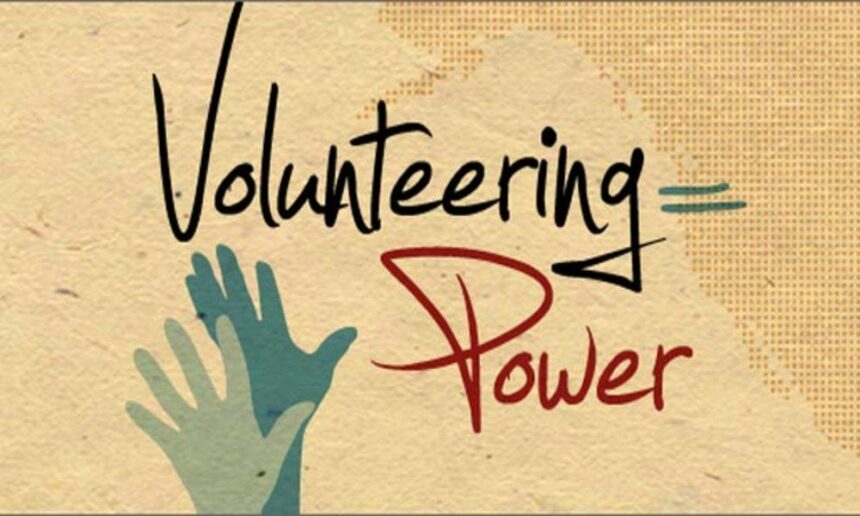It is said that success is ultimately measured by what you have done for others rather than for yourself. In this sense, how successful are Mongolians? What are we doing for others without being asked to? How are we volunteering? How many people have you helped without thinking of your own personal interests and not asking something in return?
Helping others means that you would lend a hand to another person regardless of where you are and how you can assist, and without expecting them to do anything for you. Volunteerism (the word ‘volunteerism’ has roots from the Latin word ‘velle’ meaning ‘helping others’) among the people indicates how culturally advanced a country is.
The word ‘volunteering’ was first introduced in 1755 when people who lived in Europe voluntarily signed up for the army. The usage of the word spread when people used the word to describe any activity that helped the soldiers: sewing uniforms, cooking, and treating the wounded. The women who helped the army were called ‘volunteers’. Volunteerism started to take place in an organised manner by the beginning of the 20th century when well-known organisations such as Rotary International, Lions Club International, and the Salvation Army were founded.
WHY DO WE HAVE TO DO VOLUNTEERING?
The United Nations say that volunteering is the main source of strength and humanitarianism amongst communities all over the world. If people combine their efforts and join powers, it will be less difficult to overcome challenges faced by an entire nation.
Winston Churchill, a former British Prime Minister, once said “We make a living by what we do, but we make a life by what we give.” We need to be generous to each other and volunteer to contribute to resolving the issues faced by not only our country, but also by the world.
We should not wait for others such as the government, NGOs, and international organisations to resolve the issues that we come across on our path of development. When solving such problems, we need to utilise our own resources, help each other, and join efforts. No one promises pay, forces or pushes someone to volunteer to do something. When people volunteer, the job they are doing is mostly very efficient because it is done from their heart and with passion. Volunteers are usually happier and more satisfied than whoever is receiving their help.
The hard work, time, knowledge, skills, and generosity dedicated by volunteers also make a great contribution to economy. For instance, nearly 70 million people (almost one in every four) volunteered 7.7 billion hours, which is estimated to be worth 171 billion USD, in the United States in 2013. It is calculated that the total value generated from volunteering equals almost three percent of GDP in developed countries and 0.8 percent in developing countries.
In this era where information and communications technology has advanced so far, it is easier than ever to volunteer in an activity. Wikipedia, an online encyclopedia, is a great example. The website was operated by only one person in 2005. However, thanks to the volunteers who contributed online, Wikipedia has been named in the 50 top websites in the world – even ranked ahead of the New York Times.
VOLUNTEERS IN MONGOLIA
I came across an American volunteer in Arvaikheer soum of Arkhangai province almost ten years ago. He was carrying a cauldron, and his clothes were covered with ash. I could not help but wonder how we, the Mongolians, help each other, in comparison to an American who had willingly left his comfortable life and travelled thousands of miles to come to the countryside of Mongolia and teach English.
During the socialist era, people were forced to volunteer. When the socio-economic transition happened, such mobilisation ceased to exist, which resulted in a significant reduction in volunteering. Nevertheless, volunteering has been revived in the last few years and is seeing much richer content. The younger people who studied abroad in developed countries are leading the volunteering today. The Mongolian Association of State Alumni, a U.S. alumni organisation abbreviated as MASA, initiated a website ‘www.bidchadna.mn’ and allowed the disabled people living in Ulaanbaatar to connect with employers and find jobs near their residential areas.
Furthermore, MASA started a project named ‘Right Decision – Bright Future’ to help high school students choose their profession on an informed basis by producing video lessons and organising series of training for social workers at high schools. Alumni networks in other countries are doing a lot of volunteering as well.
Mongolians say “If others reach their objectives, your objective will be achieved as well.”Volunteerism plays an important role in a country with a population as small as Mongolia. The simplest example is students working voluntarily at an organisation. Although the basic requirement to apply for a job is previous experience, students have a hard time finding a part time job.
There could be a website that connects volunteer students with jobs in their interested field. We could build a culture where university students can use volunteering hours for credits, and organisations first ask whether the applicants did volunteering or not during job interviews.
It is time to set up a system where volunteers are mobilised in the event of an emergency such as natural disasters, infectious diseases, and forest fires. There needs to be a legal framework that allows volunteers to be organised, trained, valued, and supported.
We need to launch initiatives that encourage and promote the people who volunteer and the job they have done. Volunteerism becomes the basis of a humanitarian society.
When the culture of helping others is built, it effects the mentality of people, who then view volunteering as a responsibility. In such a country, national unity is strengthened and development becomes human-centered.
My fellow Mongolians, let us join our efforts in volunteering to develop our beautiful country!
2015.11.18












